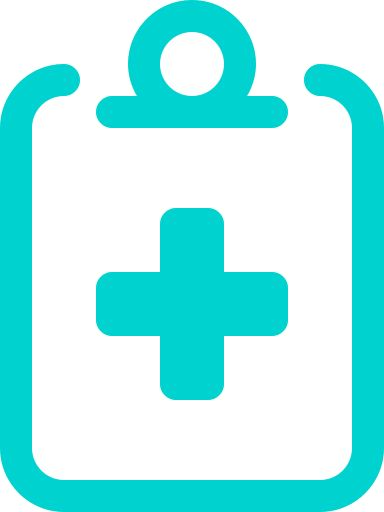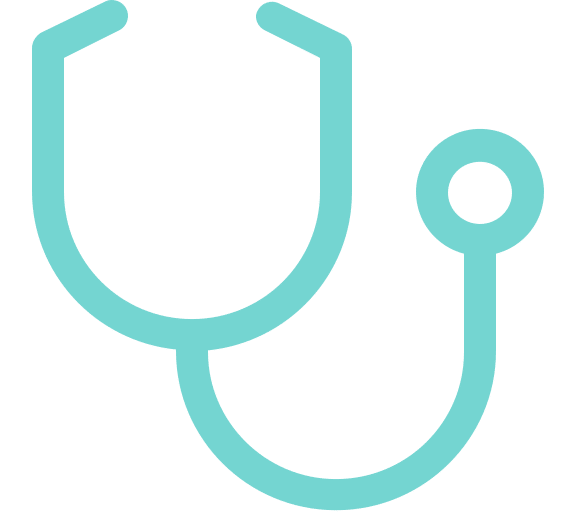Acne Treatment
Ireland's Award-Winning Online Doctor Service
Treatments that we can provide
Acne is a skin condition that will affect many people at some point in their lives. It is a common misconception that acne only affects teenagers and young adults because of hormonal changes, and adult acne is also common.
We issue prescriptions for generic name medicines to ensure maximum availability of treatments. Please read the Important Medical Information below and check your dispensed prescription before leaving the pharmacy as no changes can be made after that point.
- Topical Treatments (Creams And Gels)
- Oral Tetracycline Antibiotics (Tablets)
- Please note that you need to provide 2 clear, up-to-date photographs of your acne.
- We can arrange prescriptions for a variety of treatments. The topical treatments (creams/ gels) can be used alone or in combination with oral antibiotic treatments.
- Oral antibiotics target bacteria commonly associated with acne flares and they also have anti-inflammatory properties. If clinically appropriate, a prescription for 12 weeks of antibiotic treatment will be issued with a topical treatment (that does not contain an antibiotic medication), which can be continued after the oral antibiotic treatment is completed.
How It Works
Requesting a prescription for Acne treatment couldn’t be easier with Webdoctor.ie! We despatch your prescription to an Irish pharmacy chosen by you.

Step 1
Online Questionnaire

Step 2
Medical Review

Step 3
Webdoctor.ie
Customer Review
Important Medical Information
What is Acne?
Acne is a common skin condition that causes whiteheads, blackheads and pimples. It usually affects teenagers, but it can affect people of all ages.
Acne is usually graded as mild, moderate or severe depending on the type of spots, their location and how many there are.
For the vast majority, this skin condition settles over time, but it can persist in some cases and cause scarring of the skin. Acne can cause a lot of anxiety and distress, however, the right treatment can help to improve acne symptoms or even clear it up.
What causes Acne?
Acne occurs when the pores of your skin become blocked with oils (sebum) and dead skin or bacteria.
A pore is a small hole in the skin that contains a hair follicle and a sebaceous gland. The sebaceous gland produces sebum to keep the hair and skin moist and in good condition.
In acne, this gland produces too much sebum. This mixes with dead skin cells and forms a plug that blocks the pores causing inflammation of the skin.
If the plug is near the surface of the pore it will bulge outwards and form a whitehead. If it is deeper and the pore remains open at the skin surface, a blackhead will form.
The natural bacteria found on the skin can then infect the plugged follicles which provide the ideal environment for bacteria to thrive, causing pus-filled spots, nodules and cysts.
The sebaceous glands of those who are prone to acne are more sensitive to hormonal changes. Puberty, pregnancy and menstrual cycle changes can trigger acne symptoms and flare-ups.
This is the cause of acne in the majority of patients. Medical conditions such as polycystic ovarian syndrome (PCOS), and medications (antiepileptic, corticosteroids, contraceptives and lithium) can cause acne symptoms.
Who is this service suitable for?
This acne treatment service is suitable for you if:
-
You are 17 years of age or older.
-
You have had a previous diagnosis of acne by a doctor.
-
You have mild-moderate acne.
-
You can provide 2 clear, up-to-date photographs of your acne.
Who is this service not suitable for?
This service is not suitable for you if:
- You have not been diagnosed with acne by a doctor.
- You have severe acne with painful lumps/ scarring.
- You require a prescription for treatment that is not listed in our medical assessment questionnaire. You require treatment for a skin condition other than acne.
- You require treatment for a skin condition other than acne.
- You require a dermatology referral.
How can I treat my Acne symptoms?
Acne can settle or clear up with the right treatment.
There are lots of products to treat acne available over the counter in your local pharmacy.
If these do not help, we can prescribe treatments for mild to moderate acne such as creams/ gels alone or in combination with oral antibiotics, if clinically appropriate.
It is important to be aware that it can take 8-12 weeks of using your treatments before you will notice any significant improvement in your symptoms. This is because the treatments are not managing your current flare, but are affecting the skin cycle to try and prevent future flares in new skin.
If you are not seeing improvements at the end of this time, you should speak with a doctor to review your treatment.
How do Acne treatments work?
There are many different types of acne treatments.
It is important that a treatment to help unblock pores (hair follicles) and reduce inflammation is used in all cases. This is generally a gel or cream. These products can be used on an ongoing basis, as required to control symptoms.
If there is a bacterial infection present, antibiotics can be used to kill the infection. These can be in cream or tablet form. These products should be used short-term to treat any active infection and then stopped. This helps to maintain their effectiveness if needed again and reduces bacterial resistance developing.
Ongoing symptoms should be managed with non-antibiotic products.
What Acne treatments can you prescribe for me?
We can arrange prescriptions for a variety of treatments. The topical treatments (creams/ gels) can be used alone or in combination with oral antibiotic treatments.
As per current medical guidelines, we do not prescribe oral antibiotics with topical antibiotics.
Oral antibiotics are always prescribed with a topical treatment that does not contain an antibiotic for best results and to reduce bacterial resistance.
Topical Treatments (Creams/ Gels)
These treatments are applied directly to the affected skin every day. Depending on the individual treatment, it will have a combination of exfoliative, anti-inflammatory and antimicrobial properties.
The type of cream/ gel that you should use is determined by several factors:
- The type of acne you have
- How sensitive your skin is
- What other treatments you are using
- Previous response to treatments
If you require long-term maintenance treatment (non- antibiotic treatments are best for this to avoid bacterial resistance).
Creams/ gels that contain antibiotic medication will be issued for a maximum of 12 weeks. After this a non-antibiotic treatment should be used, if needed, to maintain symptom control.
Creams/ gels that do not contact antibiotic medication will be issued for 24 weeks (6 months).
If your symptoms have not settled/ improved after 8- 12 weeks of treatment, then you should speak with a doctor.
Oral antibiotics (tetracyclines)
Oral antibiotics target bacteria commonly associated with acne flares and they also have anti-inflammatory properties. If clinically appropriate, a prescription for 12 weeks of antibiotic treatment will be issued with a topical treatment (that does not contain an antibiotic medication), which can be continued after the oral antibiotic treatment is completed.
What are the side effects of these treatments?
The most common side effect of the topical treatments is skin irritation (dry skin, redness, peeling and burning sensation).
Using these products more frequently than advised will not have any beneficial effect on symptom control, and will significantly increase the risk of problematic skin irritation.
Be aware that some treatments may bleach hair, clothes and bed linen that it comes into contact with.
Some patients may develop side effects when using oral antibiotics such as nausea, vomiting, diarrhoea and abdominal pain (‘heartburn’). If you develop a persistent headache with blurred vision/ loss of vision, stop this medication and seek urgent medical advice.
Topical retinoid creams/ gels and oral antibiotic treatments will make your skin more photosensitive and therefore more likely to burn. Exposure to sunlight/ sun lamps should be avoided.
For full details on potential side effects of your medication, please ensure that you read the patient information leaflet that comes with your medication before you start to use it for full details on potential side effects.
If you are concerned that you are developing any side effects, we advise that you stop your medication and seek medical advice.
Can I use this service if I am pregnant or breastfeeding?
It is important that you let us know if you are pregnant/ trying to conceive or breastfeeding so we can give you safe and appropriate advice.
Need more information on Acne?
For further information about acne, including useful skincare tips, please visit Acne – BAD Patient Hub
Why Choose Webdoctor.ie?

Expertise
All of our doctors are registered with the Irish Medical Council and provide convenient and confidential healthcare to our patients.
Confidential
Caring
Convenience
Value
Irish
Webdoctor.ie is an Irish-based healthcare provider trusted by over 800,000 patients.
Webdoctor.ie In The Media
As Ireland's leading online doctor service, Webdoctor.ie is regularly featured in the national media.
Want to know more about us?
Visit our media page